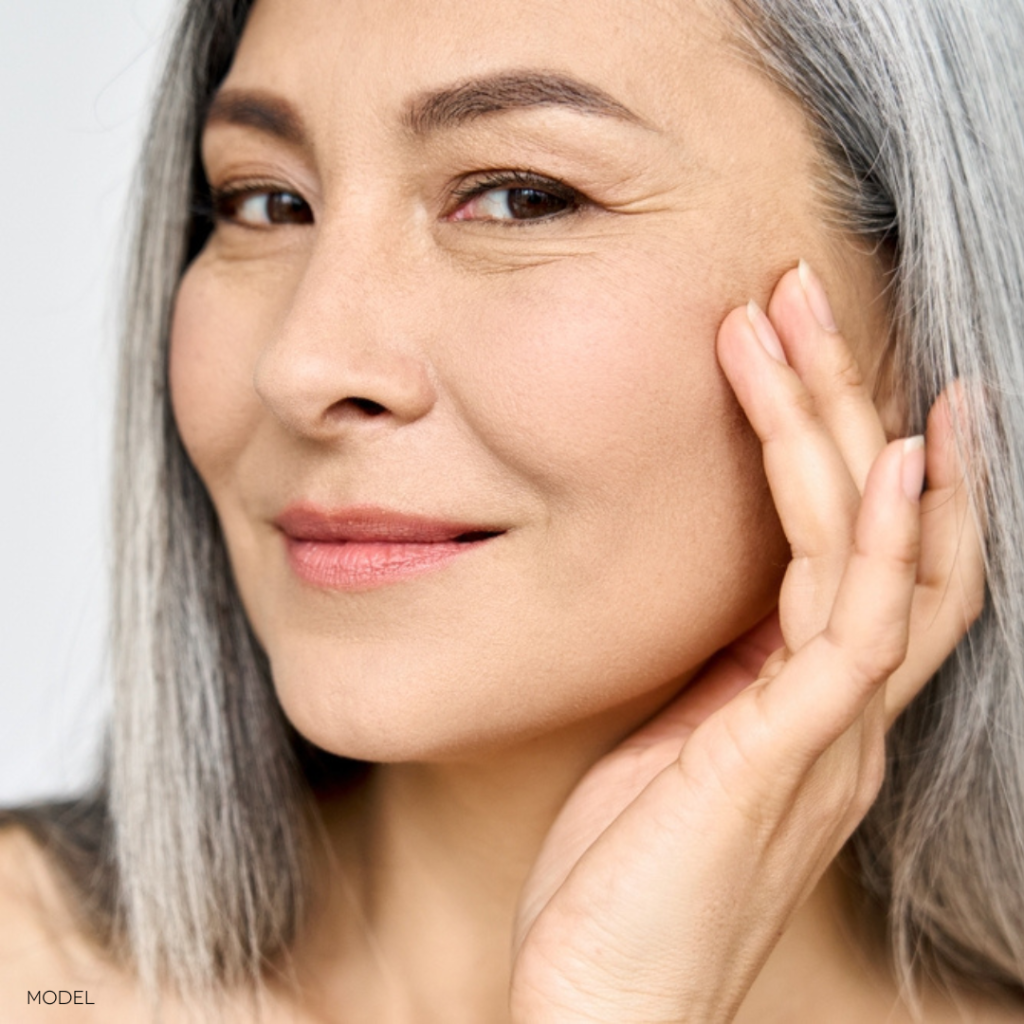-by board-certified facial plastic surgeon Heather Lee, MD
In a blink, the holiday season has ended and a new year has begun!
These transitions are a time of reflection on all the events of the past 12 months and gratitude for all the blessings and loved ones that enrich our lives. While 2020 was a difficult year, we can still come away realizing how fortunate we are, and now more than ever, we should take the time to appreciate those around us more often throughout the year.
Medical literature suggests this simple ability to reflect on the good may have profound effects on our health, and there has been increasing interest in the effects of gratitude on physical health. We are finding that not only does this task improve our mental well-being, but our physical selves as well. Coming away from 2020, this is more important than ever!
Dr. Robert Emmons, Ph.D., a professor of psychology at University of California Davis has spent decades studying gratitude. He defines gratitude as, “a trait, a state, an attitude, a way of coping, and a virtue all rolled into one. Gratitude is an affirmation of the goodness in one’s life and the recognition that the sources of this goodness lies at least partially outside the self.” (1)
His definition acknowledges the good we experience, and encourages us to look and think outside of ourselves, which can be a powerful psychological exercise.
He has found that gratitude benefits our cardiovascular system by lowering blood pressure as well as improving immune function. People who exhibit higher levels of gratitude engage in healthier habits with more exercise, better dietary habits, are less likely to smoke, and have higher rates of medication compliance.
One of the ways to increase gratitude in your life is through gratitude journaling. This compels us to take the time to not only appreciate what we have but acknowledge the outside forces that help make those happen and to look beyond ourselves. By doing so, these healthy thoughts and habits begin transforming the way we think long-term so that we start to make these associations instinctively and automatically, which then carries the benefits of this thought process throughout our daily lives.
The power of relationships
The one blessing that gratitude always brings me to are all of the wonderful people in my life. In addition to gratitude, we are finding that friendship and meaningful social connection has a profound influence on health and wellness.
When examining cultures across the world with the longest lifespan, we find that one of the commonalties between them is meaningful social interactions throughout life. Whether it is the Okinawans in Japan or Sardinians in Italy, maintaining a robust social network and continuing to participate and contribute to their communities has proved just as vital to their health as the food they eat.
Social networks serve as a key support. They encourage people to stay active, which in turn promotes physical health and psychological well-being. They often help people manage stress, give purpose to their life, and bring about ownership and responsibility for their health as they realize their role in the lives of others. Social isolation can be a significant factor in depression not only in the elderly, but for all ages. The protective and beneficial effects of friendship are demonstrated across all age groups.
Lydia Denworth has explored how friendship impacts health with her book, Friendship: the Evolution, Biology, and Extraordinary Power of Life’s Fundamental Bond. She found that animals that exhibit strong social bonds live longer and healthier. And just as strong, meaningful relationships can benefit us, toxic or ambivalent relationships can have detrimental effects on our health.
Mindfulness and physical health
The mind-body connection is another area being further explored and utilized in modern medicine, specifically with the practice of mindful meditation. Mindfulness is the state of being aware of one’s current experiences without judgement. Its origins are based on Buddhist meditation techniques, but it has been widely used across the globe and across faiths. Mindful meditation has played a role in mental and emotional health, but we are now finding its impact on physical health as well.
In today’s busy world, many have turned to meditation practices to help reduce stress. There are a number of studies exploring the role of meditation in patients with different cancers that have found improvements in anxiety, depression, sleep, and fatigue.
Recent neuroimaging studies show that meditation actually changes the brain. MRI images were taken and those who practiced meditation for 8 weeks had increased grey matter in the hippocampus, which is a part of the brain responsible for learning, memory and introspection. The amygdala however, which is responsible for our fight or flight response, showed decreased grey matter density.
Further studies have shown that 50-year-olds who practiced meditation had the same amount of gray matter as people half their age, which suggests a higher utilization of more brain regions and connections. This can translate to better memory and learning improvements.
Overall wellness
We are beginning to learn there are so many factors that affect health. Of course, it is important to eat well and exercise, not smoke, and take your prescribed medication, but these studies remind me that overall wellness is a result of all of our behaviors and habits; physical, mental, emotional, and social.
As a physician, my goal is to ultimately improve my patients’ health and well-being, not only physically but as a whole. I strive to treat the whole person, to look past the physical concern to ensure that their emotional and mental well-being is also taken into account. There is a connection between what we feel and think with our physical selves, and the psychological and physical parts of ourselves are interfacing in more ways than we realize. If needed, I encourage patients to seek additional resources that can point them in the right direction to feel whole and well on all levels.
As a facial plastic surgeon, I realize that many patients come to see me for procedures and treatments that will affect their physical appearance. I have treated countless patients who have been tormented either by others’ or their own view of themselves. As their physician, I try to encourage them to realize that reaching their aesthetic goal is just part of the treatment. A facial plastic surgery procedure can boost self-esteem, alleviate a concern, and improve functionality. But, we are more than what we look like, and it is powerful when we recognize that in ourselves and others. I also encourage patients to be kind to themselves, as it’s especially easy in today’s age of social media to place unrealistic expectations on ourselves.
Beauty is more than what you do or do not eat, or how much you exercise, or how many wrinkles we have. Beauty is loving yourself, being grateful and at peace knowing you are enough just as you are.
Those truly beautiful people you see that make your head turn are the ones who reflect this internal truth.
With this new year, I wish for you all a wealth of health and happiness!
“Be careful of your thoughts, for your thoughts become your words.
Chinese proverb, author unknown
Be careful of your words, for your words become your actions.
Be careful of your actions, for your actions become your habits.
Be careful of your habits, for your habits become your character.
Be careful of your character, for your character becomes your destiny.”
- https://news.heart.org/study-gratitude-is-a-healthy-attitude/




Leave a Reply